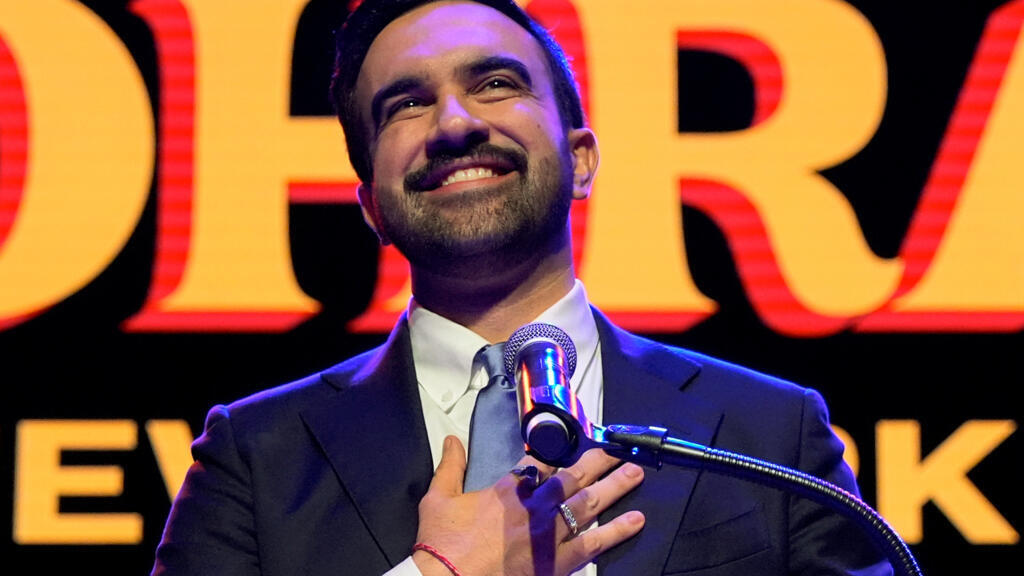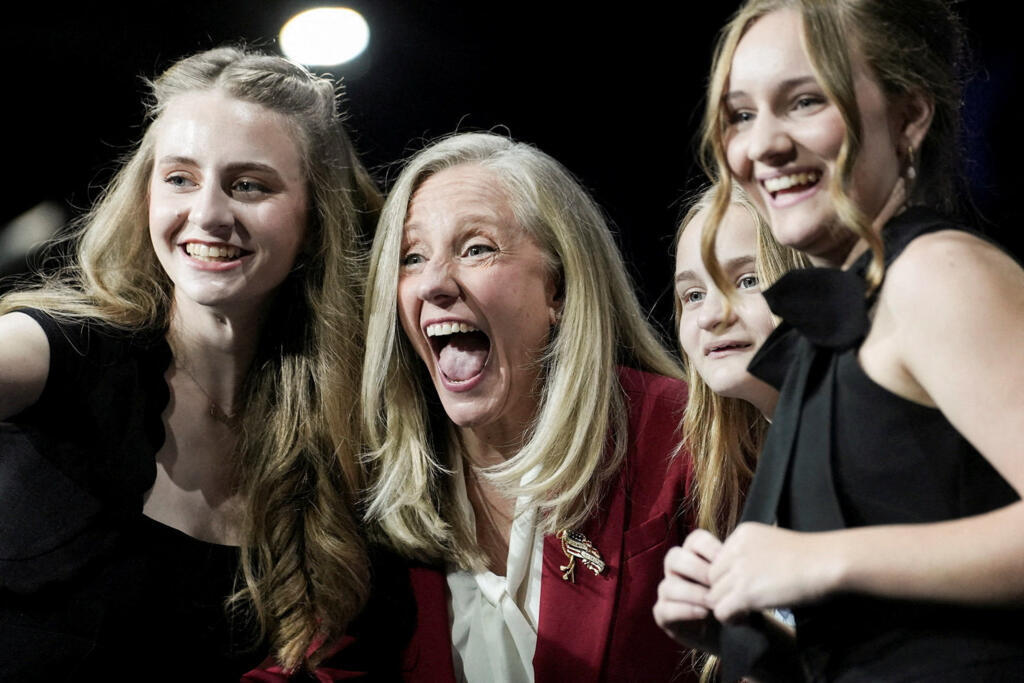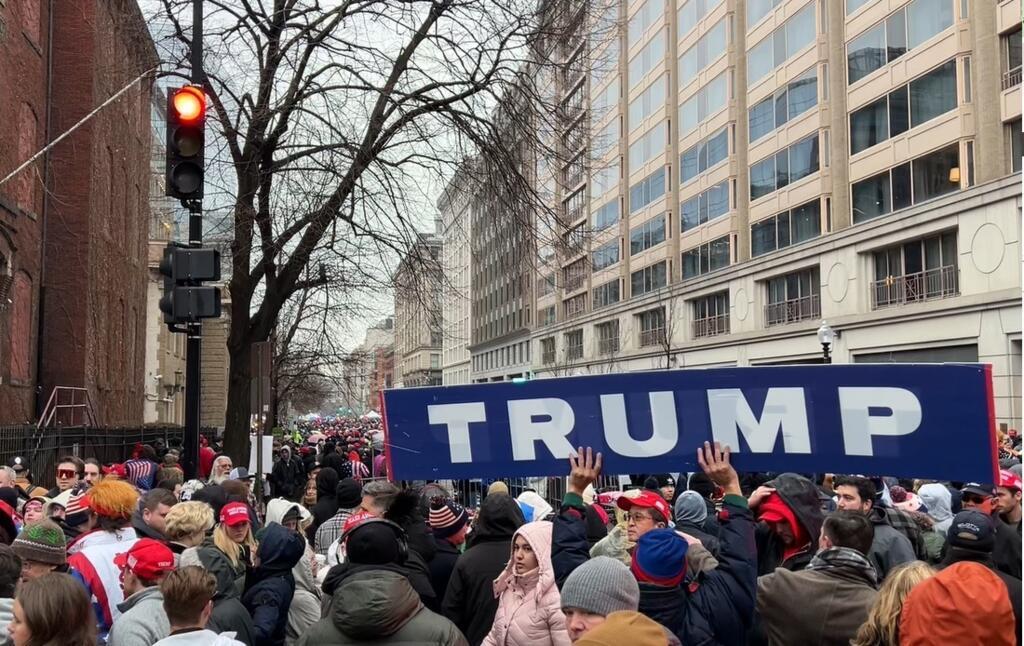
The United States' Democratic Party make decisive gains in local elections last week, hinting at new political fault lines in an unsettled electorate. Political scientist Charles Bullock of the University of Georgia, a veteran observer of US elections, analyses the implications for the 2026 midterms.
The 4 November elections were the first major test of voter sentiment since President Donald Trump’s re-election and the turbulence that followed his second inauguration.
The early months of Trump’s new term, marked by policy reversals, federal job cuts and social discord, have shifted the political mood.
Against this backdrop, left-winger Zohran Mamdani’s surprise win in the New York mayoral race and Democratic advances in Virginia and New Jersey speak to an electorate growing weary of economic strain and political instability.
While it is too soon to say whether the party can maintain the momentum ahead of midterms next November, the results suggest that voters may be looking for steadier leadership.
Bullock told RFI what explains the Democrats' success, and what lessons both they and the Republicans can take from it.
RFI: What are the implications of Zohran Mamdani's victory in New York?
Charles Bullock: It certainly ended the career of former Governor [Andrew] Cuomo. But does this suggest that the Democratic Party is shifting significantly to the left nationally? I don’t think it does. The New York electorate is hardly representative of the electorate across the country.

A problem for the Democrats is that Republicans have been trying to make him the face of the Democratic Party. We’ve seen this before: regardless of where you stood as a Democrat, Republicans linked you to Ted Kennedy, and more recently to Nancy Pelosi.
So Mamdani is likely to become, in Republican eyes, the face of what they would call “socialism” or even “communism”, and they will try to make more moderate Democrats in other parts of the country carry that burden.
Mamdani is going to become, in Republican eyes, the face of 'socialism' or maybe even 'communism'.
INTERVIEW with Charles Bullock III on US 4 Nov elections
What underlying trends do the Democratic victories in Virginia and New Jersey's governor elections reveal heading towards the 2026 midterms?
Virginia is an interesting case, as it almost always votes for the nominee of the party that does not control the White House – and it followed that pattern again. But beyond that, [Governor-elect] Abigail Spanberger was such a strong candidate, winning by more than a dozen points.
Further down the ballot, Democrats picked up 15 seats in the state legislature, leaving only 35 Republicans, down from 49 – the lowest number of Republicans in the House of Delegates in 40 years.

This was a real wipe-out for Republicans in Virginia, the bluest state in the South, and one with a large number of federal employees, many of whom are currently unpaid or were dismissed as a result of cuts by Elon Musk.
This suggests that, going into 2026, states with large numbers of federal employees may take out their frustrations on the Republicans.
How significant is the mobilisation of Democratic voters in traditionally competitive races? And do you see this as a genuine shift or a reaction to specific national events?
Several factors are driving the Democratic Party at the moment, particularly the cost of living. This puts Republicans in a difficult position because part of the reason Donald Trump did so well and won the seven swing states was his promise to tackle inflation.
Prices haven’t gone down. And as of Saturday, people on Obamacare – the healthcare plan for those without employer coverage – began receiving bills that have doubled, tripled or even quadrupled. This reinforces the public perception that costs are spiralling, and that blame is likely to fall on the Republican Party.
This fits into a broader pattern: presidents tend to lose ground in their midterm elections. The midterms act as a check on how the president and his party are performing. You can’t vote against the president directly, but if you’re unhappy, you take it out on his party.
Why America's Democrats aren't as wounded as you might think
Based on the 4 November election results, what warning signs are there for both Democrats and Republicans as they begin preparing for next year’s midterms?
The Democrats might risk getting carried away by these successes, though it will certainly make fundraising easier. For Republicans, it’s a moment to reflect and consider whether changes are needed.
I don’t think the results will have any effect on Maga supporters – the people in the red hats who remain firmly committed to Donald Trump. Their minds won’t change.

So in Republican primaries, the incentive is still to seek Trump’s endorsement, or at least to avoid criticising him. But given that Trump’s approval ratings are now in the low 40s nationally – and even in the 30s in some states – this could be a double-edged sword.
His backing may help a Republican win a nomination but could hurt them in the general election. You’ll always get the Republican vote, but in most states that’s not enough; you need independents, and maybe even some Democrats. What we saw on 4 November is that independents have largely turned against Trump.
What do these results suggest about the current national mood, and how might they shape party messaging for next year?
The Democrats performed well in these elections, but in some ways they are still swimming against the tide, as many voters remain dissatisfied with both parties.
We are also seeing an ever-wider divide between urban and rural America. Urban areas lean Democratic, but rural ones are now overwhelmingly Republican.

If Democrats focus only on their urban strongholds and neglect outreach in rural communities, they could underperform there badly enough to cancel out their urban gains. That’s something they need to keep in mind going into 2026.
US gun culture alive and kicking in battleground state of Pennsylvania
Do you see any special issues emerging during the midterms, or is it too early to tell?
There’s growing disaffection among Latino voters. Trump made notable gains with them in 2024, but this year’s vote in New Jersey shows a clear shift away from the Republican candidate for governor, Jack Cittarelli, who closely tied himself to Trump.
Latinos who supported Trump when he promised to deport criminal elements might accept that if it targets genuinely dangerous offenders, but they’re not willing to see relatives or neighbours with minor offences deported.
If there’s a significant swing of Hispanic voters back towards the Democrats, that could change the outcome in marginal congressional districts in states such as Texas and Florida.
Democrats seemed completely at a loss in the months that followed Trump's re-election, unable to find a clear strategy to counter him. Will they now be able to organise themselves better to challenge the Republican candidate in the 2028 presidential election?
They should now have a clearer sense of the issues they can campaign on. Much of what Trump ran on is proving less popular in practice.
His plans to reduce the size of the federal government have alienated large numbers of federal employees who have been laid off, as well as their families and communities.
The cuts have created widespread frustration, with people struggling to reach services such as Social Security or the Internal Revenue Service.
The policies Trump promised to implement are turning out to be far less popular than he anticipated with the broader electorate.







